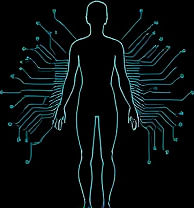Ethics in Personal Enhancement
 by Verner Mayer
by Verner Mayer
Exploring the ethical dimensions of personal enhancement in biohacking, this article examines the balance between innovation and responsibility in using nootropics and wearable technology for self-improvement. Discover how to approach these methods with care and consideration.

Personal enhancement has become a key focus for many seeking better health and performance. In the context of biohacking, this involves methods like nootropics for cognitive improvement and wearable technology for tracking vital signs. These approaches offer potential for significant gains, but they also bring up important ethical considerations.
One major area is the issue of safety. Individuals often experiment with nootropics, substances that aim to boost brain function, without full knowledge of long-term effects. For instance, while these compounds can enhance memory and focus, misuse might lead to unintended health problems. This highlights the need for careful evaluation before adoption.
Wearable technology plays a role in monitoring daily activities and health metrics. Devices that track heart rate or sleep patterns provide valuable data for optimization. Yet, questions arise about data privacy and how this information is used. Users must consider who has access to their personal details and the potential for misuse.
Equity is another ethical factor. Not everyone has equal access to these tools, creating disparities in who can benefit from personal enhancement. Those with resources might gain advantages in work or daily life, while others are left behind. This raises concerns about fairness and how to make these technologies more inclusive.
Benefits and Risks
The advantages of personal enhancement are clear. For example, wearable technology can help detect early signs of health issues, allowing for timely intervention. This proactive approach supports overall well-being and can prevent more serious conditions.
However, risks cannot be ignored. Over-reliance on these methods might lead to a false sense of security. People could neglect traditional health practices in favor of quick fixes, potentially causing harm. It's essential to integrate these tools into a balanced routine.
In biohacking communities, discussions often center on responsible use. Participants share experiences with nootropics, emphasizing the importance of consulting professionals. This community-driven knowledge helps mitigate risks and promotes ethical practices.
Personal Responsibility
Taking a motivational stance, individuals can approach personal enhancement with thoughtfulness. Start by setting clear goals, such as improving focus through nootropics or monitoring fitness with wearable devices. This ensures that efforts align with personal values and long-term health.
Education is vital. Learning about the science behind these methods empowers users to make informed choices. For instance, understanding how nootropics interact with the body can prevent adverse effects and enhance benefits.
Collaboration with experts is advisable. Working with healthcare providers allows for personalized advice, ensuring that enhancement strategies are safe and effective. This partnership fosters a sense of accountability and ethical alignment.
Looking Forward
As biohacking evolves, so do the ethical landscapes. Future developments in wearable technology might offer even more sophisticated options for health optimization. Staying informed about emerging trends helps individuals navigate these changes responsibly.
In conclusion, personal enhancement through biohacking holds great promise but requires a commitment to ethics. By prioritizing safety, equity, and responsibility, enthusiasts can enjoy the benefits while minimizing drawbacks. This balanced approach not only supports individual growth but also contributes to a healthier society overall.
- Key Tips for Ethical Practice:
- Research thoroughly before trying new methods.
- Prioritize professional guidance.
- Consider the broader impacts on society.
- Maintain a holistic view of health.
